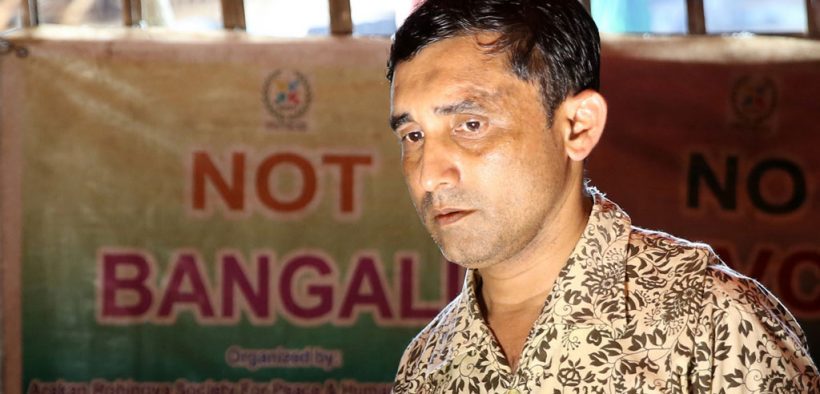Rights bodies call for investigation into Rohingya leader Mohib Ullah’s killing

Gunmen shot and killed the leader of Arakan Rohingya Society for Peace and Human Rights at a camp in Cox’s Bazar
International rights organizations have called for investigation into the killing of leading Rohingya activist Mohammad Mohib Ullah.
“The onus now falls on Bangladeshi authorities to conduct a prompt investigation into his death and bring all those suspected of criminal responsibility to justice in fair trials”, Amnesty International’s South Asia Campaigner Saad Hammadi in a statement on Wednesday.
Amnesty urged the Bangladeshi government and the UN Refugee Agency to work together to secure the safety of everyone living in the camps, many of whom have expressed worries about their safety.
The problem of violence in Cox’s Bazaar’s refugee camps is getting worse. Armed groups linked to drug cartels have killed and kidnapped people. To avert future violence, the government must act quickly, the statement added.
Mohib Ullah’s assassination is a clear reminder of the dangers that individuals in the camps who speak out for freedom and against violence confront, says Human Rights Watch.
His death undermines not only Rohingya refugees’ fight for better rights and protection in refugee camps, but also their efforts to return to Myanmar safely, its South Asia director Meenakshi Ganguly said in a statement.
Mohib Ullah’s death, as well as previous attacks on Rohingya activists in the camps, should be investigated as soon as possible by Bangladeshi authorities, said Ganguly.
 File photo shows Md. Mohib Ullah, the leader of Arakan Rohingya Society for Peace and Human Rights, at the Kutupalong camp in Cox’s Bazar, Bangladesh April 7, 2019 Reuters
File photo shows Md. Mohib Ullah, the leader of Arakan Rohingya Society for Peace and Human Rights, at the Kutupalong camp in Cox’s Bazar, Bangladesh April 7, 2019 Reuters
On Wednesday, Mohib Ullah, 46, chair of the Arakan Rohingya Society for Peace and Human Rights (ARSPH), was shot and killed by unidentified gunmen in Kutupalong camp in Cox’s Bazar, Bangladesh.
He led one of the largest of several community groups to emerge since more than 730,000 Rohingya Muslims fled Myanmar after a military crackdown in August 2017.
Invited to the White House and to speak to the United Nations Human Rights Council, he was one of the most high-profile advocates for the Rohingya, a Muslim minority that has faced persecution for generations.











